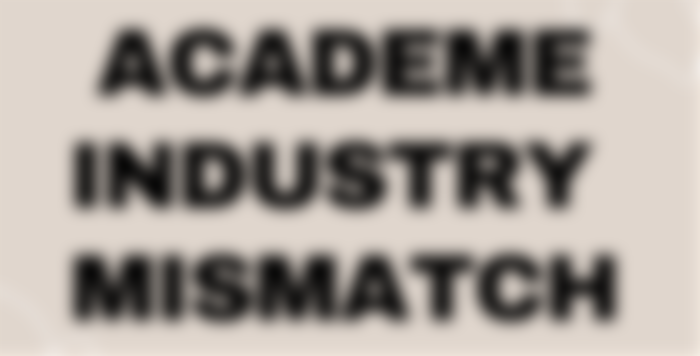It is often said that there is a mismatch with what is produced by the academe and the need of the industry. In other words, the skills gained by the students in the academe does not match with what is required of the industry. Thus, the graduate has the tendency of not being hired to the job they are expected to have. Let's say, there are IT graduates who are supposedly to be IT specialists, programmers, network specialists, but becomes clerical assistants or sales agents because they lack the skills for the jobs that they should have. (But please don't get me wrong here, I am not against those who choose a different line of job which is not inline to the course he/she graduated, because I know that each of us has a choice). I am just presenting a scenario that most of the tracer study would say that the jobs of the graduates does not match with their degree.

One of the possible solution for the mismatch is the close coordination of academe and industry. I can still remember, participating in academe-industry dialogues in which the two parties discussed on how to handle the mismatch. There the technologies, techniques, programming languages that are not taught in the academe that the industry are using. Thus, it is just right that the Industry would let the Academe knows what's the recent trends on their side.

One of the possible solution is the Faculty Immersion to the Industry, this scheme allows the faculty to be part of the company for a period of time. This immersion is quite relevant to student OJT but quite higher compared to it. It is an application of what has been written in theories. The advantages that I can see through this way are:
The faculty will have an actual experience of what is in the industry. As a faculty, I can say, sometimes we are bookish, we rely on what's written on the book. But theory is different from application. So if the faculty has an actual industry experience he/she will know what are the industry trends, what methods works best, what are the best practices, how to people work in the industry. With that, the faculty can share to his/her students the new knowledge gained.
The Faculty can teach to the students based on experience. In the IT field, one of the qualifications for a faculty is industry experience. There are faculty members, who do not have industry experience prior to teaching. Through the immersion, the faculty will be given the chance to work in the industry, he/she himself will know what are to be applied to the academe and what are the necessary skills a student should have. Some can be really taught well, when the faculty have already experienced it.
Strong collaboration between the academe and industry. The dialogues might not be enough for solving the issue of mismatch, the immersion of the faculty will be alternative way of strong collaboration because the faculty will be updated all the time about the updates in the industry.
While there are advantages, the disadvantage might be on the side of the academe because when the faculty who will undergo immersion might be offered a job that is quite more promising compared to being a faculty. So the faculty workforce might be lessen. So it should be stated in the Memorandum of Understanding, that the faculty is discourage to be employed in the industry.
Closing thoughts
The gap between the academe and industry is a long term issue but measures can be done to solve the mismatch. Proper coordination and communication is very important in every endeavor.
How about you? Do you believe that there is a mismatch with what is the academe is producing versus the need of the industry? I would love to read your thoughts.
LINKS
If you have a passion in writing you are very much welcome in read.cash
👉https://read.cash/r/MizLhaine
And if you want shorter messages, see you in Noise
👉https://noise.cash/u/MizLhaine




I agree... in our uni before, part of the thesis requirement was to be affiliated with an actual company